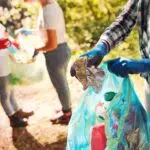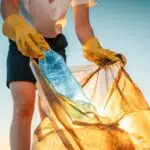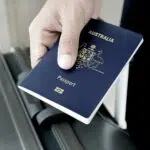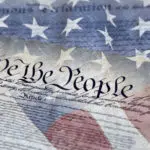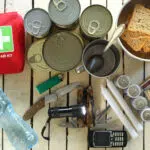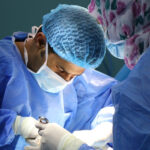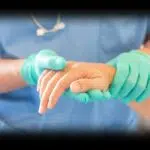Prepare yourself — because September 17 is Get Ready Day. Established in 2006 by the American Public Health Association (APHA), the goal of Get Ready Day is to arm individuals, families, and communities with knowledge that will help them cope with crises such as natural disasters, infectious diseases and pandemic illnesses. To stay prepared, attend a Get Ready Day event in your area and get yourself — and your loved ones — ready to survive any emergency situation that may come your way. You could save a life, maybe even your own!
When is Get Ready Day 2024?
Prepare and equip yourself to go into survival mode on Get Ready Day on September 16.
History of Get Ready Day
The American Public Health Association’s (APHA) Get Ready Day is on the third Tuesday in September, coinciding with National Preparedness Month. The campaign’s aim is to prepare American citizens and their communities for emergency crisis situations like natural disasters or hazards.
Being equipped with the right tools, having ample stock of food and water, and just overall being ready for worst-case scenarios during emergencies is important for survival. This is exactly what Get Ready Day creates awareness for. COVID-19 is an example of how, in the face of a pandemic, most of us were unprepared, and that being prepared involves having enough supply and resources to make it through months of lockdown or similar situations if necessary. A general checklist of necessities during a disaster is water, food, a radio, a flashlight, and a first aid kit.
The campaign was first started in the mid-2000s by the APHA. A dedicated website also exists, providing checklists and other information. It is important to discuss sensible emergency survival plans with families and friends. Educational institutions and community centers also host discussions and distribute material on preparing for unforeseen dangers and disasters.
Get Ready Day timeline
Dr. Stephen Smith — commissioner of New York City’s Metropolitan Health Board — creates the American Public Health Association.
Due to intense support from the American Public Health Association, the United Nations establishes the World Health Organization.
President Bill Clinton declares the first week of April National Public Health Week.
The headquarters for APHA is built in Washington, D.C.
As a means to arm the public with the resources to best handle dangerous situations, APHA launches the Get Ready campaign.
Get Ready Day FAQs
What are the four phases of emergency preparedness?
Disasters are categorized into four phases: mitigation, preparedness, response, and recovery.
What should a basic emergency supply kit include?
A basic emergency supply kit should include the following recommended items:
- Water
- Food
- Battery-powered or hand-crank radio
- Flashlight
- First-aid kit
What is the goal of emergency preparedness?
The goal of emergency preparedness is to strengthen the capacity of governments, organizations, institutions, and communities to withstand a disaster or emergency situation.
How to Observe Get Ready Day
Get involved
Coordinate an after-school fair involving people of all ages. Want to spread the message to the senior citizens in your community? Schedule a preparedness talk at your local senior center.
Prepare
Get Ready Day is a great reminder to stock up on the supplies that will prepare you to cope with a crisis. Snag good deals by shopping online for whatever you think you'll need to get through the challenge. Canned foods and other food items with a long shelf life, batteries, flashlights and face masks are just a few ideas.
Spread APHA's message
You can help APHA get survival tips and tricks out to your community by setting up a table at your local supermarket and handing out preparedness fliers. Post materials at local churches and coffee shops. Ask the church secretary to include Get Ready Day information in the weekly church bulletin.
4 "Ah Ha!" APHA Moments
APHA fought one of the deadliest diseases in U.S. history
APHA played a large role in fighting the tuberculosis outbreak that occurred from 1895-1954.
Mosquitoes pose a health risk
Walter Reed, a U.S. Army physician, announces that mosquitoes carry yellow fever at the 1990 APHA Annual Meeting.
The polio vaccine
Jonas Salk, a member of APHA, creates the Salk vaccine as a way to treat polio.
The AIDS crisis
APHA testified at the first congressional hearing held to discuss the AIDS epidemic.
Why Get Ready Day is Important
It teaches us out how cope with a crisis
Get Ready Day’s preparedness information is educational and beneficial, so Americans can learn the best strategies to prepare for — and cope with — disastrous situations. With online toolkits, social media resources and local events, Get Ready Day’s information is easy to access, so make sure you take advantage, read up and follow through.
It encourages us to keep our cool
Dangerous, unexpected situations are nerve-wracking, stressful and unsettling, but thanks to Get Ready Day, we can stay a little calmer. Because of all the helpful information that circulates on Get Ready Day, we can chill out knowing we have the supplies and knowledge to better handle emergencies.
It puts health and safety at the top of our list
Get Ready Day is all about making sure we know how to best respond to any emergency situation. Not only does this help us feel equipped to deal with unsafe circumstances, but it also confirms that APHA cares about our survival.
Get Ready Day dates
| Year | Date | Day |
|---|---|---|
| 2021 | September 21 | Tuesday |
| 2022 | September 20 | Tuesday |
| 2023 | September 19 | Tuesday |
| 2024 | September 17 | Tuesday |
| 2025 | September 16 | Tuesday |


